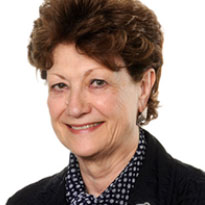Sixteen healthcare IT predictions for 2016
- 31 December 2015

|
As Health and Social Care Information Centre chief executive Andy Williams points out: “A crystal ball isn’t required to foresee the pivotal role of information, data and technology in supporting efficiencies within the (health and social care) sector next year.” Digital Health News asked health IT experts from across the board what their predictions are for the precise role of technology in 2016. Responses set out the workload of central bodies and the impact of these on IT directors and clinicians ‘at the coalface’, considered thorny issues of information governance and security, and delivered supplier perspectives. They also showed that while the challenges are the same, the responses look a little different in Scotland, Wales and Ireland. |
||
|
Read the predictions from: Andy Williams (HSCIC), Richard Jefferson (NHS England), Andrew Griffiths (Wales), Scott Henderson (NHS Shared Business Services), NHS Providers, Phil Koczan (UCL Partners), Robin Wright (Scotland), Dame Fiona Caldicott (national data guardian), Natlie Bateman (techUK), Phil Booth (MedConfidential), Richard Corbridge (Ireland), Colin Henderson (Orion Health), Justin Whatling (Cerner), Marcus Bolton (System C), Paul Cooper (IMS Maxims), Alan Fowles (Nuance). |
||
 |
Andy Williams, Health and Social Care Information Centre chief executive The successful mobilisation of National Information Board roadmaps will be crucial. HSCIC’s work will include creating a data services platform that supports efficient data collection and dissemination. It will also include making the ambitions of NHS.uk a reality – bringing together existing systems like e-referrals and electronic prescription service to a unified place. HSCIC will build on infrastructure achievements, such as transitioning to the new Spine, by delivering national infrastructure and systems for a 21st century service, and we will strive to achieve at least the 99.9% availability we have realised thus far. Before the curtain falls on 2016, we will support primary care providers to move to SNOMED Clinical Terms and put the stepping stones in place to help secondary providers make the move by 2020. |
|
 |
Richard Jefferson, NHS England head of business systems We will continue to see a move to the ‘middle’, where local organisations, regions and the centre collaborate and share ideas and initiatives; whether through the creation of local digital roadmaps or through Code4Health and similar initiatives. Examples such as the Code4Health interoperability community will lead the way on commitments made in the CCIO Newcastle Declaration, the Tech UK Interoperability Charter and the National Information Board ‘Personalised Health and Care 2020’ vision. I think we will also continue to see a focus on the usefulness and usability of the tools we give patients and clinicians, and the success of apps and wearables offering data integration and sharing rather than just standalone capability. |
|
|
Andrew Griffiths, director, NHS Wales Informatics Service I am immensely proud of the progress we’ve made in Wales to put technology to work for patient care. This was recognised at the EHI Awards 2015, when I was pleased to receive ‘Healthcare IT Champion of the Year’ on behalf of everyone involved in developing and delivering our digital platform for health and care. Our technical architecture is supporting national systems for pathology and digital imaging that are not seen in other parts of the UK. During the year, we also successfully upgraded the computer systems at every one of our GP practices. Another highlight was the procurement of the Welsh Community Care System; but I would have liked to see more progress in the integration of services to support new and emerging care models. |
||
 |
Scott Henderson, IT director NHS Shared Business Services 2016 will be a pivotal year in the development of a closer relationship between IT and the business of healthcare. The key area in this partnership will be analytics. The most successful organisations are defining, at a detailed level, the areas in which it is critical for them to have specific intelligence. It will be for the IT functions to deliver in those areas; rationalising and organising the huge amounts of data that the business holds. We are seeing a shift from a concentration (even an obsession!) with the concept of big data to a business-driven agenda to leverage that data. Success in the IT arena will be defined by making the correct technology choices to facilitate insightful analytics. |
|
|
Deborah Gulliver, Isabel Lobo, Siva Anandaciva, NHS Providers This will be the year when digital maturity self-assessments become a catalyst for change, and digital roadmaps pull whole health economies together to develop coherent local digital strategies. There will be more shared procurement of IT solutions across health and social care; extending the digital capability of staff across different care settings will be prioritised; and in the first year after the spending review, the National Information Board and Bob Wachter reviews will set out a clear, multi-annual support plan for achieving a ‘paperless and digital’ NHS by 2020. Unfortunately, this will also be the year in which organisations with unfit-for-purpose systems and approaches will starkly contrast with other organisations. Successful organisations will rapidly merge health and social care data systems to integrate care; develop capability through cross-sector partnership working; and take advantage of digital working to increasingly ‘move knowledge, not people’. |
||
 |
Phil Kozcan, chief clinical information officer, UCL Partners 2015 has been an interesting year, in which I feel we have moved to a world where integrated care is the future – along with an increasing role for patients in supporting delivery of their own care. 2016, I feel, is going to the year when all the talk turns into action. I hope it will be controlled and co-ordinated across local, regional and national areas – but I fear it may become rather chaotic. Many areas are looking at new ways of delivering care, especially the ‘vanguard’ sites, and it is important to learn from them – and also recognise when things are going wrong, so we can change the focus. Importantly, we need to make sure we get clinicians, suppliers and technical teams working together to solve the local problems having a detailed understanding of what else is happening in the area, using common standards where they exist and driving greater collaboration. |
|
|
Robin Wright, director of health information and technology, NHS Greater Glasgow and Clyde As a country service, NHS Scotland has continued to achieve great things in the area of e/d/m-health during 2015. Inevitably, serving the public well through ensuring highly performant, functional, safe, and secure systems and services is our priority – and this is characterised in our national eHealth Strategy. Through a diligent approach to defining our needs – and fulfilling these through the establishment of good supplier relationships blended with highly motivated and hugely committed NHS staff in the Health IT marketplace – we have established a very solid foundation from which to ‘add value’ in future. This will be achieved by ‘going increasingly digital’; and doing this, both internally and in our relationship with our ‘customers’, will define the next period of our strategy. The prospect of this is exciting and represents the next frontier in health maintenance and health and social care delivery. We are looking forward to that challenge immensely – recognising of course that it will be as, if not more, challenging than our journey to date. |
||
 |
Dame Fiona Caldicott, National Data Guardian Since September, I have been carrying out a review for the Secretary of State for Health of the security of health and care data, jointly with the Care Quality Commission, and also working on a single model of opt outs / consent for data sharing. I anticipate that the issue of data security will continue to rise up the agenda in the coming year. One of the consequences of recent publicity about cyber threats to consumer data held by commercial organisations may be that citizens will have more questions about how private data concerning their health and care is kept secure. Also, the public, quite rightly, wants to know how their confidential health and care information is used and shared. Questions of consent and opt outs require much more engagement with citizens. The system must be ready to answer all these important questions honestly and transparently and ensure that best practice is shared. I hope that our review of both issues will be an important step forward in this. |
|
 |
Natalie Bateman, techUK head of health and social care programme In 2016, there will be a significant focus on sharing patient data. The government’s response to Dame Fiona Caldicott’s recommendations on data security standards and a consent model for care.data will set the scene for what comes next. General provisions of the General Data Protection Regulation will also influence how patient data is gathered, stored, shared, processed and used. As a result government, in collaboration with key players in digital health and care including the technology industry, will need to make a compelling case to the public and service providers on the irrefutable need to share information across the care continuum – both for direct and indirect care – and to implement the safeguards to make sure this is done securely and effectively. |
|
|
Phil Booth, coordinator, medConfidential NHS England’s data woes will get worse before they get better. Following Tim Kelsey’s antipodean opt-out, the toxic culture he leaves behind at NHS England will continue to bloom like a digital MRSA-algae hybrid, pulling oxygen away from other discussions that directly lead to better patient care. With the Prime Minister’s grab of all GP diaries, “collect it all” has become so pervasive around the NHS and government that it will take yet another controversy to see that care.data was the result of systemic bureaucratic failings. The Spending Review gave NHS England £1 billion compared to a reported IT ask for up to £5.5 billion, so which parts of the vision get cut? The first indication of the post-Kelsey priorities will be the timing of the “care.data 2” dataset: if it happens in 2016, Kelsey's ghost will continue to haunt care.data until it is exorcised. |
||
|
Richard Corbridge, chief information officer, Health Service Ireland This time last year, Ireland was just getting its first chief information officer. Since then, it has been able to move from the delivery of technology into local organisations with no national strategy, to a situation in which it has a nationally approved plan for delivery. The Knowledge and Information plan has already delivered eReferral to 50% of hospitals and seen national contracts signed for the delivery of a national maternity and new born system (MN-CMS) and a national lab system (MEDLIS). Ireland is coming to the concept of digital health late, and one downside is that the level of expectation from clinicians is huge. To achieve what clinicians expect is going to take considered and meaningful investment, to which, to date, Ireland has not been able to commit – but watch this space! |
||
 |
Colin Henderson, Orion Health managing director for the UK and Ireland Integrated digital care records are maturing in the UK and Ireland, and digital roadmaps will be required across England. While some regions are starting their journey, many have achieved very high levels of adoption. We expect to see much more practical applications of portal-type technology as care economies become more integrated. This patient-centred approach should also see more patient access pilots come to fruition, involving specific disease areas, and using limited data. Given the 2020 vision, pockets of precision medicine are likely to become more operational also, but again with specific cohorts and use cases. Care coordination programmes will continue to emerge, with analytics technology helping identify the best opportunities for care management. Open APIs and consumer-centric mobile access are guaranteed topics for the year ahead. |
|
|
Dr Justin Whatling, Cerner vice president population health Vanguards will be a hot topic and need more funding than has been anticipated, but early signs of progress will encourage the government and we may see some understanding to release unhelpful legacy targets (wait times or the like) to enable new ways of working. Interoperability will be key as the explosion of patient centric apps will demand that the captured data has somewhere to go in the local electronic patient records and drive uptake of, and perhaps accelerate the advancement of, HL7 FHIR standards. Open APIs may well be mandated to help with this. Patient engagement, already at the top of traditional provider lists, will become a boardroom topic even for specialist providers like lab services companies. |
||
 |
Markus Bolton, joint chief executive of System C The £1 billion of funding for NHS IT unveiled in the Treasury spending review will start to be parcelled out: the expectation is a series of funds for specific purposes, each requiring clear evidence of the tangible benefits every proposal will deliver. We will see more of trusts joining up their capabilities in order to really see the benefits from their investments both internally with the likes of electronic patient monitoring and hospital-wide administration systems, and externally, with integrated records across while health and social care local economies, building on the achievements of Manchester, Hampshire and elsewhere. The vanguards will really start to demonstrate the power of local innovation, using ICT to help re-engineer services around users in creative ways. As with any experiments, some will inevitably fail, but we should be honest about this and see the lessons from failures as just as valuable as those from successes. |
|
|
Paul Cooper, research director at IMS MAXIMS I can see 2016 being the year that open source really matures in the NHS. It will no longer be viewed as a bit ‘maverick’ as more trusts go live with an open source electronic patient record. Instead it will be regarded as a strong option for trusts looking to achieve value for money when procuring EPRs. I also see the emergence of service suppliers that focus on supporting a wide variety of open source products, not just the ones they originally produced. Open source will be viewed as the primary way of guaranteeing open data to provide interoperability and data exchange across the health and social care economy. |
||
 |
Alan Fowles, Nuance, senior vice president, healthcare international sales and operations Productivity challenges will persist despite more funding for the NHS made available through the recent spending review. As hospitals continue to digitise and electronic patient records proliferate, the laborious task of creating, reviewing and updating those records will not go away. I believe that the use of front end speech recognition will grow. In the interests of unburdening healthcare professionals from tedious administration, improved clinical decision making, better patient safety and outcomes, a more complete and accurate patient record captured as it happens is a must. |
|




